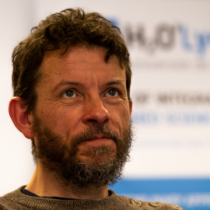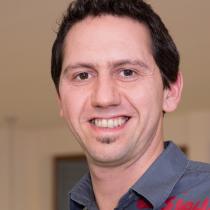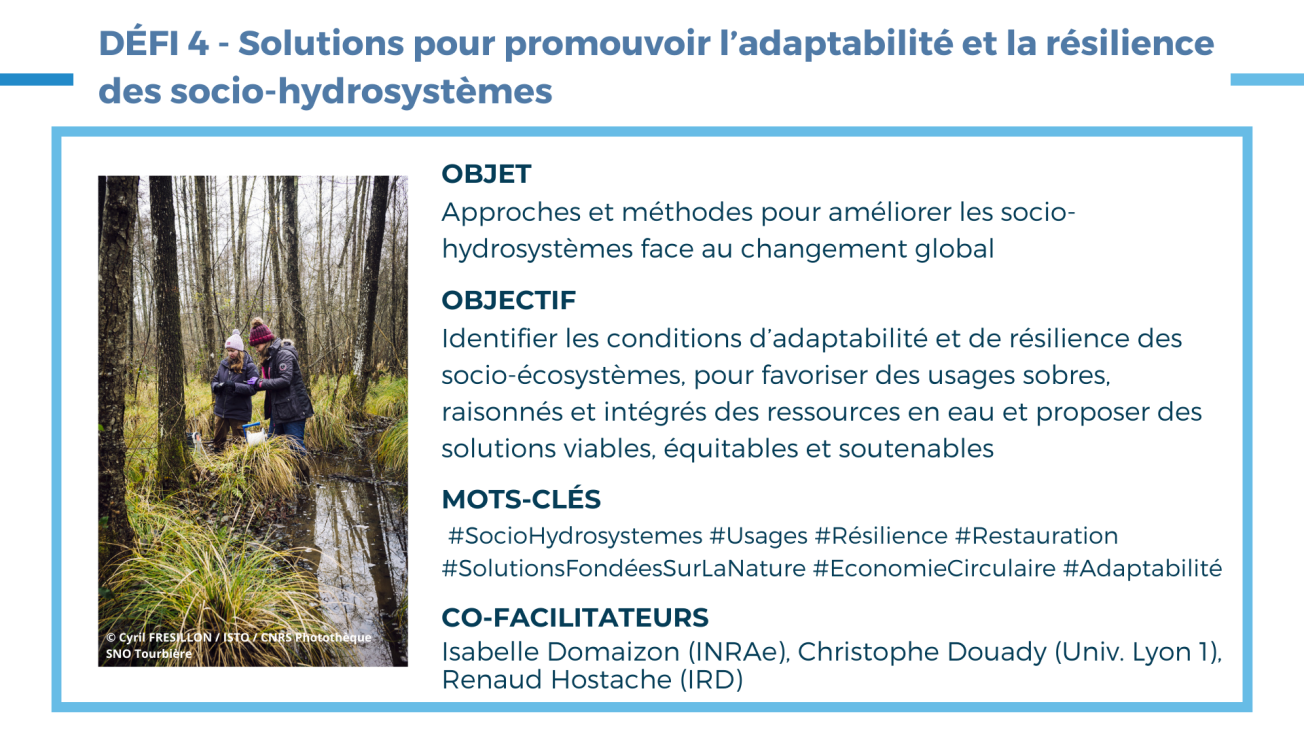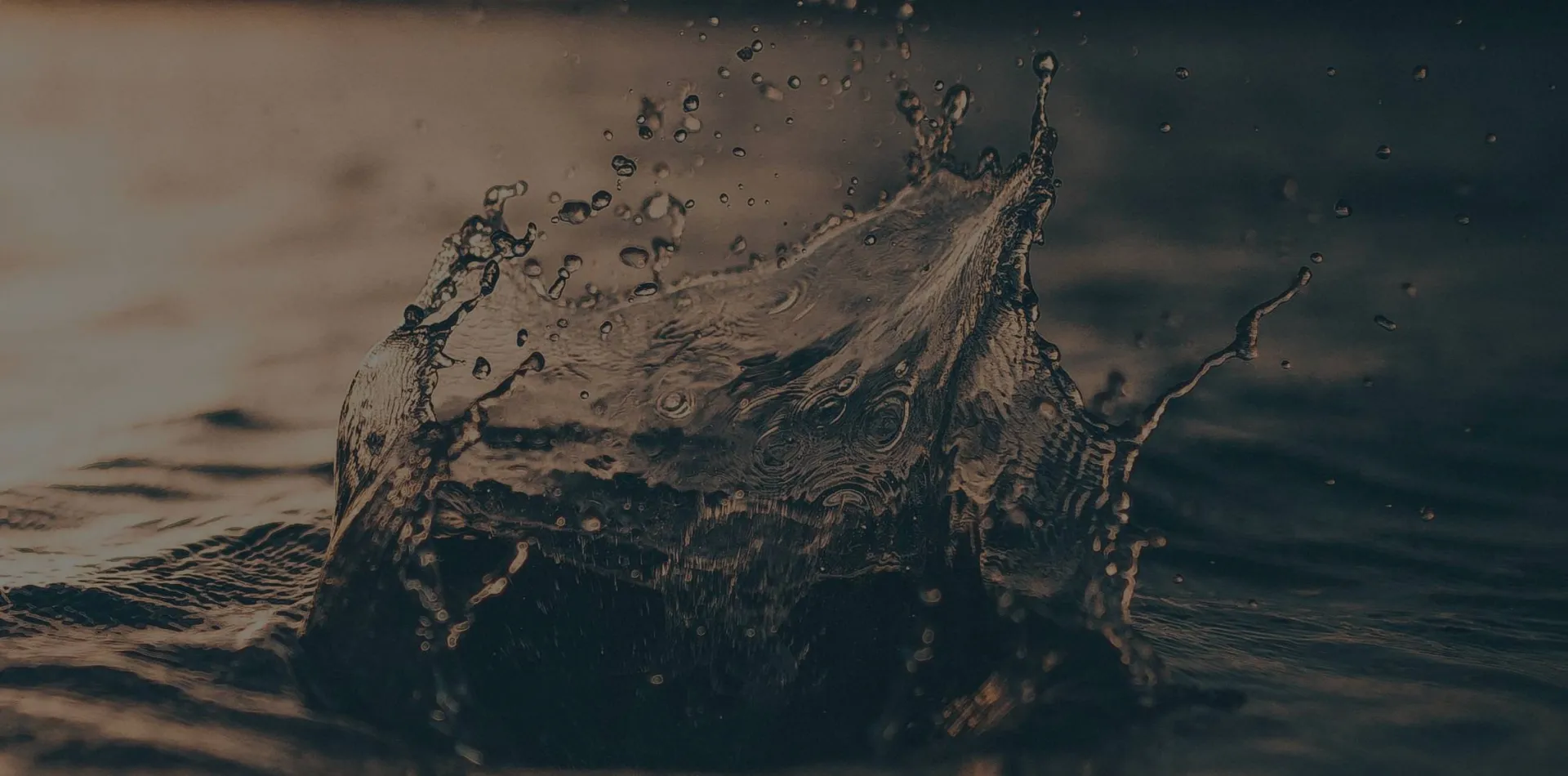Co-facilitators



Presentation
Challenge 4 seeks to better identify the conditions for the adaptability and resilience of socio-hydrosystems, put forward solutions to improve them, and determine the obstacles and levers for implementing these solutions.
1. Better identify the conditions for the adaptability and resilience of socio-hydrosystems
Here, one of the goals is to scale up so as to better conceptualize and predict biodiversity trajectories, changes in ecological functions and the related ecosystem services.
Work on the adaptability of living organisms, the functional roles of communities, and the functioning of meta-ecosystems will feed into forward-looking models on changes in aquatic resources and will identify the key parameters influencing their resilience.
The successes will be shared with water stakeholders at multiple levels and will help to develop new management practices adapted to different contexts.
2. Put forward solutions to boost socio-hydrosystem adaptability and resilience
Here, the ambitions are to:
(i) activate solutions – which may be technical (e.g. new technologies), ecosystem-based (e.g. Nature-Based Solutions), socio-economic (e.g. incentives for more efficient use) and even legislative (e.g. priority access) – to increase the systems’ adaptability and resilience
(ii) better define the temporal and spatial scales at which these solutions will be effective and how they can be transferred from one territory to another
(iii) test forward-looking scenarios for resource quantity and quality to assess the long-term effects of the solutions put forward
(iv) incorporate a multi-criteria decision-making framework to ensure the overall effectiveness of the solutions and the capacity to assess them.
3. Define potential barriers and levers to implement solutions for sustainable, equitable and integrated water use in a context of trade-offs
The goal here is to:
(i) make water a key focus of the transition to a more circular economy, with particular emphasis on reuse
(ii) promote the participatory processes that are essential to successful water sharing
(iii) draw on new practices and new technologies to put forward sustainable management plans integrating all compartments (atmospheric water, surface water, including estuaries and aquifers) and taking account of the limits and trade-offs between uses.

Défi 4 - Adaptabilité et résilience
© OneWater

